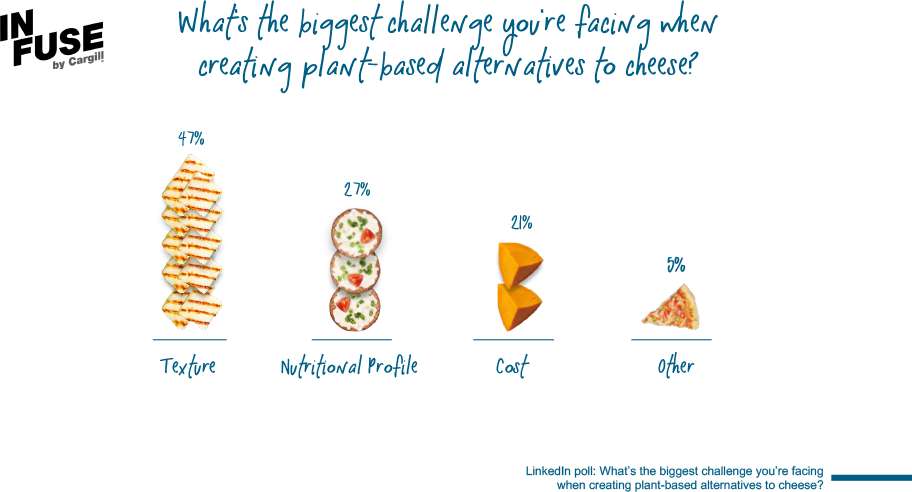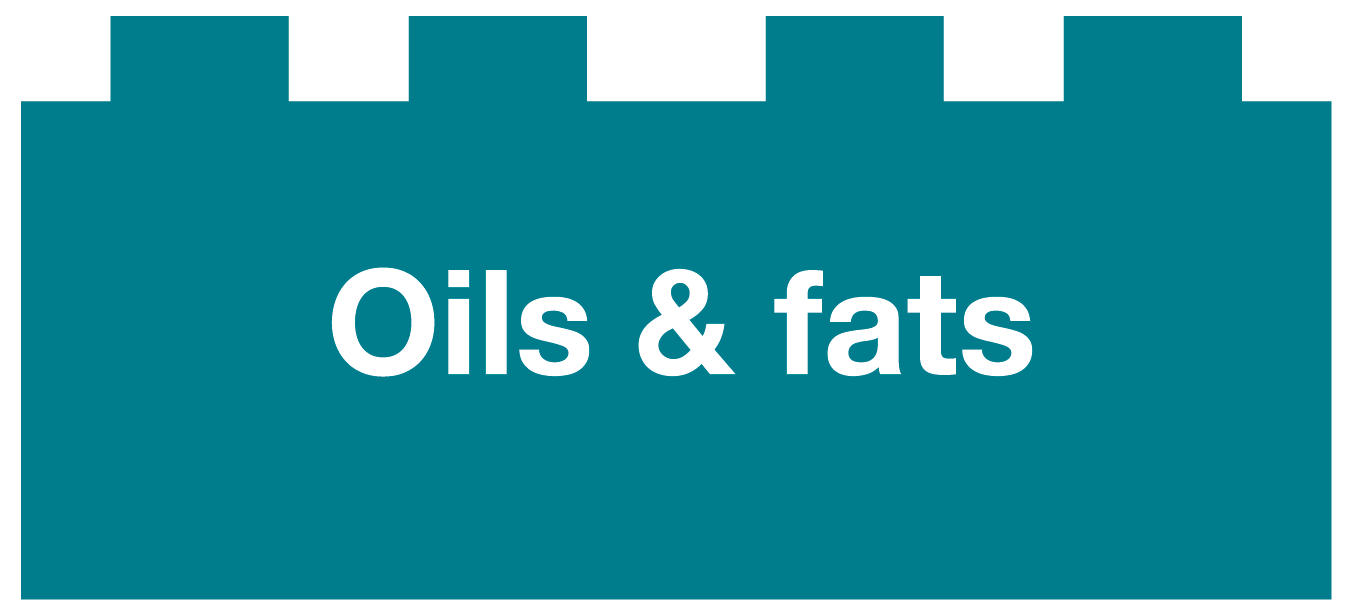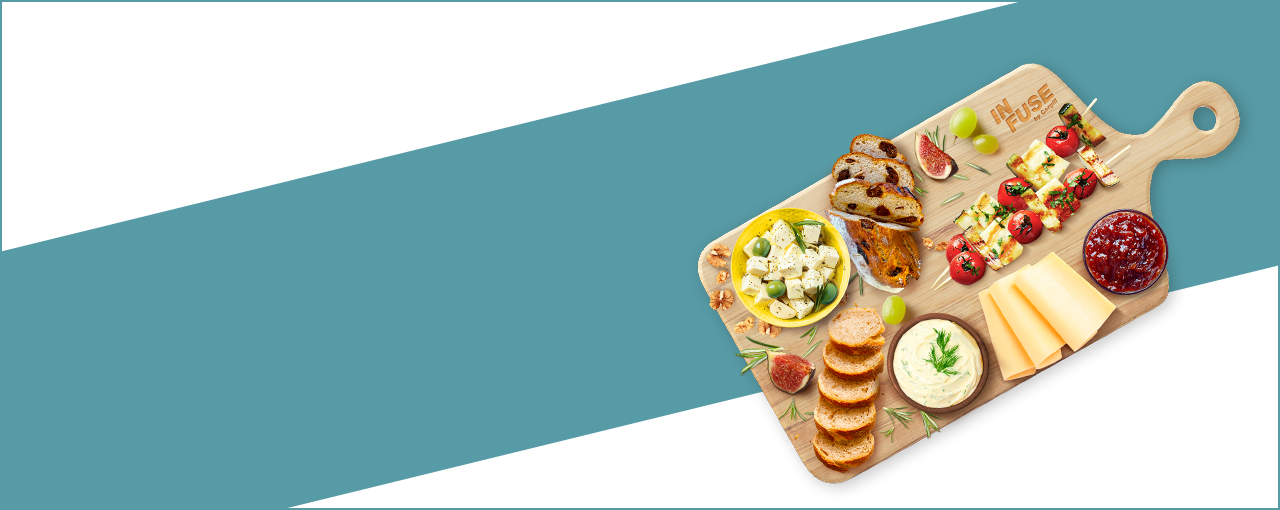Cheezy Delights: Plant-based alternatives to cheese
Plant-based alternatives are truly mainstreaming, with especially dairy and meat alternatives driving this trend forward. The majority of plant-based dairy purchasers are consuming more plant-based dairy compared to the past few years, predominantly due to health motivations*. And plant-based alternatives to cheese are no exception. With a high past and future forecasted growth, Euromonitor** has identified the market size from 28k T in 2019, to 48k T in 2023 to grow to 62k T in 2026 in Europe.
But creating viable options is easier said than done, particularly when it comes to texture. In fact, a recent online poll*** of food industry colleagues found 47% of manufacturers to indicate “texture” as the biggest challenge they’re facing when creating plant-based alternatives to cheese; well ahead of “nutritional profile” (27%), and “cost” (21%).

*Cargill proprietary research, November 2022, Plant-based dairy & meat alternatives shoppers, N=900, UK, Germany & France
** Euromonitor Passport - Plant-based cheese, total market, Europe
***Cargill Food Ingredients Poll, LinkedIn
Our solutions
As different cheese types have different functionalities and textures that need to be mimicked, they all require different ingredient solutions.
While our first generation of solutions for plant-based alternatives to cheese were focused on taking out dairy proteins, and fully replacing them with texturizing systems, our new wave of solutions go further by incorporating plant-based proteins (e.g. pea protein), primarily for organoleptic properties.
We have created these recipes using our ingredient building blocks approach leveraging the broad Cargill portfolio of vegetable oils and fats, pea protein, blends of (modified) starches and/or texturizer blends.
The building blocks to our concept are:

|
PURIS™ pea protein: Thanks to a process improvement we were able to raise the protein content in the prototypes to min. 2.45% and beyond for the Cypriot Delight. Thanks to its mild flavor, low off notes and outstanding solubility, pea protein delivers great functionality and organoleptic properties. |
|

|
Cargill IY 45 SH: Specialty blend of cocoa butter and rapeseed oil that helps with meltability, and ensures a nice, creamy mouthfeel. |
|

|
ACH 875: A unique blend of functional starches that enables a variety of recipes to be created, such as bloc, soft and fondue types, and a variety of textures depending on dosage (8-23%). |
|

|
Carefully selected combinations of (modified) starch, fibers and other texturizers for their individual functionality. • ACH 864 K: A blend of modified and native maize starch, guar gum and carrageenan provides the main cheese alternative ‘architecture: it is improving the texture and the eating experience, as it improves elasticity, melting behavior (strings), and - in combination with pea protein – is less sticky on the teeth after melting. • ACH 840: A blend of soluble corn fiber, xanthan gum and guar gum helps to deliver key properties such as elasticity, stretch, meltability and texture. • ACH 830: A blend of modified and native maize starch, and guar gum allows the plant-based alternative to cheese to not melt and maintain its shape when exposed to hot temperatures, such as those on a barbecue grill, for example. |
Insights report: Plant-based Cheezy Delights - consumer pleasing innovation
Download our insights report and learn more about consumer expectations for plant-based dairy alternatives and how INFUSE by Cargill™ experts can help you design mouthwatering recipes.
Technical white paper: Plant-based Cheezy Delights - beyond the board
Download our technical white paper and learn more about the formulation challenges plant-based alternatives to cheese poses and how INFUSE by Cargill™ experts can help you formulate for success.

